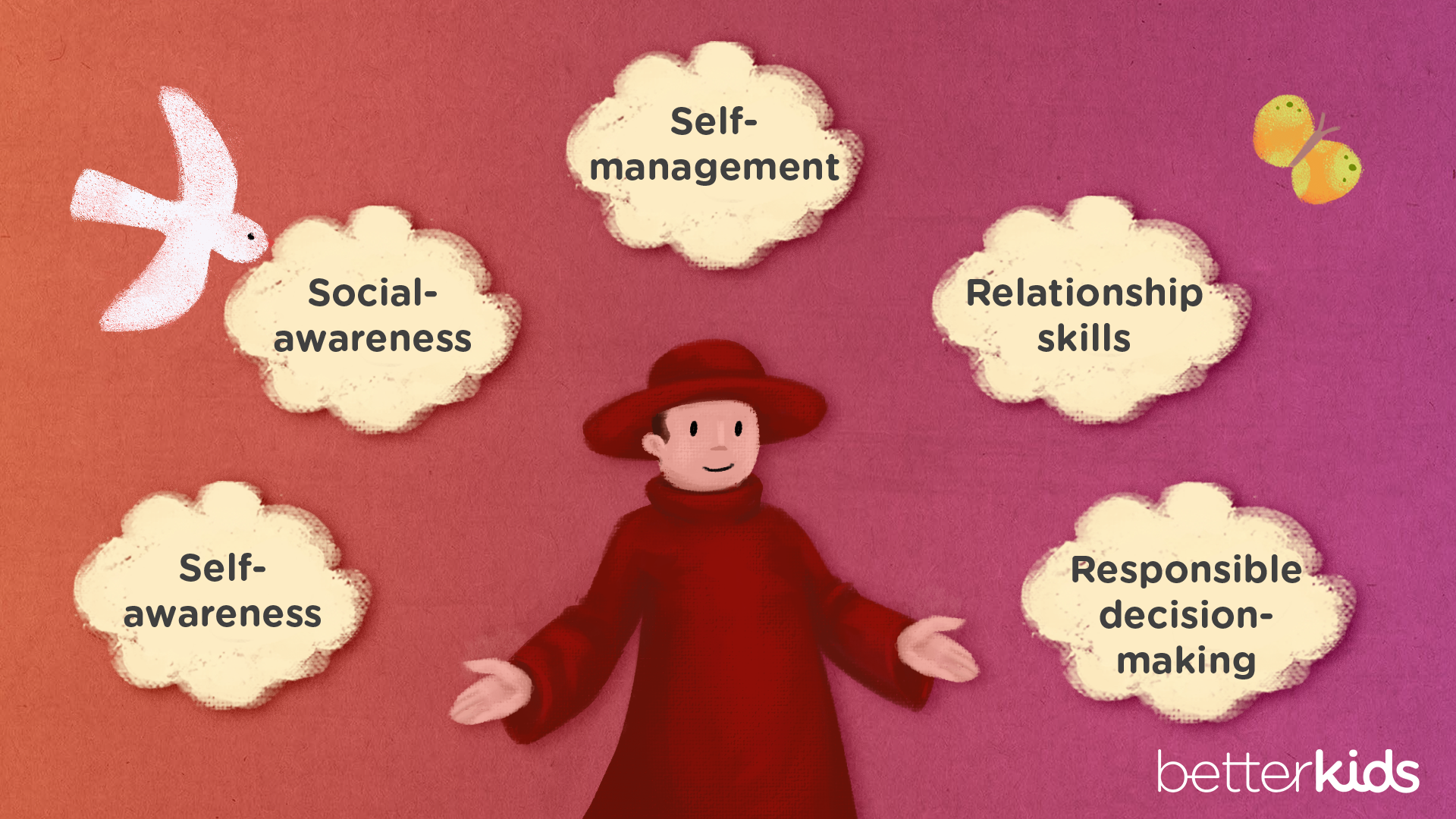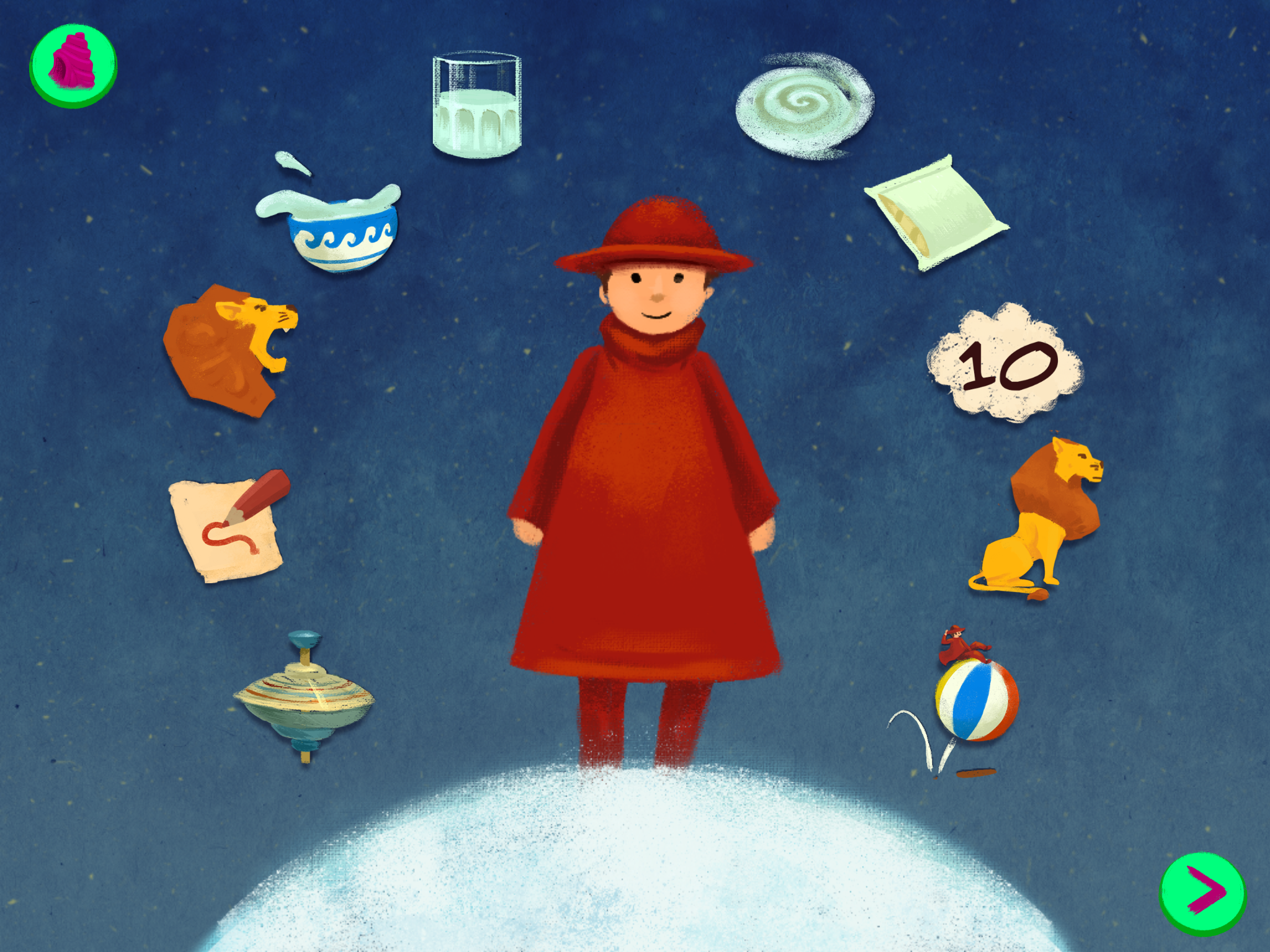





What is SEL
What is SEL
According to CASEL (Collaborative for Academic, Social and Emotional Learning), Social and Emotional Learning includes 5 core competencies:
SELF-AWARENESS: the ability to accurately recognize one’s emotions and thoughts and their influence on behavior. This includes accurately assessing one’s strengths and limitations and possessing a well-grounded sense of confidence and optimism
SELF-MANAGEMENT: the ability to regulate one’s emotions, thoughts, and behaviors effectively in different situations. This includes managing stress, controlling impulses, motivating oneself, and setting and working toward achieving personal and academic goals
SOCIAL AWARENESS: the ability to take the perspective of and empathize with others from diverse backgrounds and cultures, to understand social and ethical norms for behavior, and to recognise family, school, and community resources and supports
RELATIONSHIP SKILLS: the ability to establish and maintain healthy and rewarding relationships with diverse individuals and groups. This includes communicating clearly, listening actively, cooperating, resisting inappropriate social pressure, negotiating conflict constructively, and seeking and offering help when needed
RESPONSIBLE DECISION-MAKING: the ability to make constructive and respectful choices about personal behavior and social interactions based on consideration of ethical standards, safety concerns, social norms, the realistic evaluation of consequences of various actions, and the well-being of oneself and others
Read More About How Wisdom Aligns With CASEL’s Core SEL Competencies

Why SEL Matters
Why SEL Matters
Students' brains are not available for academic learning when they are undergoing intense emotions
In order for students to stay engaged and motivated, they need to learn how to maintain focus and effort in the face of setbacks, work effectively with others, and be good communicators and problem-solvers.
Social Emotional skills can be taught to every student
Social Emotional Learning yields positive sustained outcomes and prevents negative outcomes
Extensive research over the past 20 years has widely demonstrated that social and emotional skills foster self-confidence, cognitive ability, successful academic learning, creativity, physical and mental health, and happiness while preventing significant negative outcomes.

Evidence-based SEL Games
A Randomized Control Trial Study showed that Wisdom has a positive impact on emotion processing in children
Evidence-based SEL Games
A Randomized Control Trial Study showed that Wisdom has a positive impact on emotion processing in children
Evidence-based Games
A Randomized Controlled Trial Study led by neuroscientists affiliated with the Center for Research in Cognition & Neurosciences showed that Wisdom: The World of Emotions has a positive impact on children’s emotion processing.
Learning sciences
Keeping children motivated and engaged in learning is a challenge! Our game design is in keeping with the latest findings in learning sciences.
Our resources and professional development helps educators teach children about their brain and how they learn.
Affective Neuroscience
Within our games, each pedagogical objective is rigorously based on recent findings of the science behind emotions and the brain.
References include namely : Damasio, Fischer, Immordino Yang, McGaugh, Bushman, di Pellegrino

Learning Through play
Learning Through play
Our Universal Game Design principles are in keeping with the way children's brains learn
Focus: our games are broken down into 20 sessions, each with a clear and single learning objective without any distractions from the learning task
Learning through active play: we ensure the player can't win the game just by randomly tapping anywhere. We keep players engaged thanks to adaptive learning: depending on the player's performance, our game automatically adapts to provide the most appropriate level of difficulty to the player (each game includes 5 levels of difficulty)
Immediate feedback: our games provide a safe space for trial and error. In case a wrong answer is selected, hints are given to the player to encourage him to try again instead of penalizing him and creating unnecessary stress. Each answer triggers visual and audio feedback
Consolidating knowledge: during each session, skills acquired in the app are transferred to real life. Throughout the different sessions, the player must reinvest what he previously learned in the pedagogical progression. Visual cues are provided to foster understanding and memorization

Creativity Through Play
Creativity Through Play
Our game design and unique artwork fuel children's creativity
Our games teach SEL from multiple angles : visual, audio, linguistic, body, kinesthetic in order to cater to diverse sensitivities among children and to allow them to create more connections between their perceptions and their feelings
Our games allow children to highlight how similar and how unique they are regarding their emotions
Our games teach children to step into someone else's shoes and to imagine different outcomes to a given situation
Unique artwork supports this vast array of perceptions, thanks to an exclusive collaboration with a very renown Japanese artist, Masahiro Naruse. His surrealistic inspirations are a cornerstone to fostering children's imagination, sense of humor and creativity, while dealing with subjects that matter
